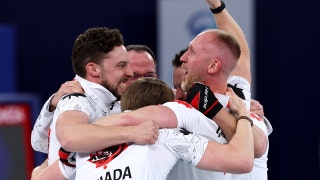DARLINGTON, S.C. — A disappointed Richard Childress, who has raced in NASCAR as a team owner for 55 years, indicated that NASCAR’s ruling and its appeals decisions that revoked Austin Dillon’s playoff spot will have a huge impact on NASCAR racing and he also considers himself having received the biggest fine in NASCAR history in the money lost in not making the playoffs.
"Their ruling has changed NASCAR racing on the final lap forever," Childress said Saturday prior to Cup practice at Darlington Raceway, later adding, "It’s over a million dollars to us. The largest fine ever in NASCAR. I’m just disappointed, disappointed, disappointed. That’s all I can say."

Richard Childress Racing appealed the NASCAR decision from Dillon’s Aug. 11 win at Richmond where he ran into the back of Joey Logano and then into the side of Denny Hamlin in the final turns to win the race. A driver earns an automatic berth to the 16-driver playoff field with the victory (as long as there aren’t more than 16 winners during the season), but NASCAR revoked that berth under a rule that says the win must be unencumbered by violations of NASCAR rules or actions detrimental to NASCAR.
A three-member NASCAR-appointed appeals board denied RCR’s first appeal Aug. 20 and NASCAR’s final appeal officer also upheld the NASCAR decision Aug. 25. The wording in the NASCAR rulebook gives NASCAR "sole discretion" to determine what actions are detrimental and what are rules violations, and NASCAR has a general rule that a driver can be penalized for contact with another driver.
"If we hadn't penalized it, then I think what we would see over the next 12 weeks would look significantly different," NASCAR President Steve Phelps said on the FOX Sports’ "Kevin Harvick’s Happy Hour" podcast. "We just can't have it.
"It really comes down to 'what do you want your sport to be?' And that's why I think we ruled the way we did because we're not demolition derby; we're just not. We are a sport that if we had done nothing, we would've opened ourselves up for a mess, honestly."
Both Logano and Hamlin were critical of the move, saying that both moves were intentional wrecks. Other drivers also said they wouldn’t have made such moves. Childress argued that neither move was egregious.
"The drivers now, they know where a line is, or they think they do," Childress said. "They don't. If you go in a car length – two-and-three-quarters was exactly how far back he was [of Logano], and the other car slows down 3 miles an hour on the last lap, you're going to bump in a little to get [him] up the race track. Is that over now?
"What is the line? And then if you go to racing somebody off the corner and they get loose [as Hamlin did] and get into you, then does that mean you're out of the Chase? That's all I got to say about the ruling. But it has changed racing for a win for sure."
The NASCAR appeals panel consists of three members from a pool of about 20 industry personnel (not employed by NASCAR), former drivers and former crew chiefs.
"An appointed appeal group — it’s tough to beat an appointment in anything," Childress said.
Childress indicated he would choose his words carefully — he doesn’t want to be on the bad end of more NASCAR decisions. He said the team will not take legal action, which could have put him in more crosshairs with NASCAR rules that for the most part prohibit teams from suing the sanctioning body (but obviously they could fight the legality of that provision).
"If it was a legal case, we had attorneys look at both sides of it, there was no way we would have lost," Childress said.
Bob Pockrass covers NASCAR for FOX Sports. He has spent decades covering motorsports, including over 30 Daytona 500s, with stints at ESPN, Sporting News, NASCAR Scene magazine and The (Daytona Beach) News-Journal. Follow him on Twitter @bobpockrass.








































